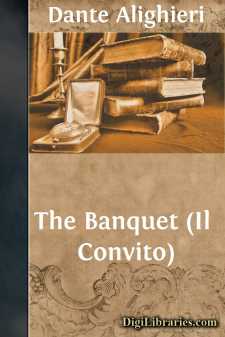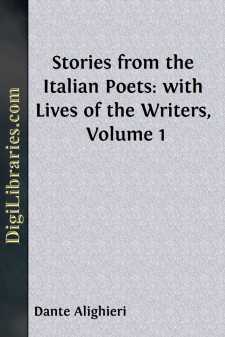Categories
- Antiques & Collectibles 13
- Architecture 36
- Art 48
- Bibles 22
- Biography & Autobiography 813
- Body, Mind & Spirit 142
- Business & Economics 28
- Children's Books 17
- Children's Fiction 14
- Computers 4
- Cooking 94
- Crafts & Hobbies 4
- Drama 346
- Education 46
- Family & Relationships 57
- Fiction 11829
- Games 19
- Gardening 17
- Health & Fitness 34
- History 1377
- House & Home 1
- Humor 147
- Juvenile Fiction 1873
- Juvenile Nonfiction 202
- Language Arts & Disciplines 88
- Law 16
- Literary Collections 686
- Literary Criticism 179
- Mathematics 13
- Medical 41
- Music 40
- Nature 179
- Non-Classifiable 1768
- Performing Arts 7
- Periodicals 1453
- Philosophy 64
- Photography 2
- Poetry 896
- Political Science 203
- Psychology 42
- Reference 154
- Religion 513
- Science 126
- Self-Help 84
- Social Science 81
- Sports & Recreation 34
- Study Aids 3
- Technology & Engineering 59
- Transportation 23
- Travel 463
- True Crime 29
Dante Alighieri
Dante Alighieri (1265–1321) was an Italian poet, philosopher, and writer, best known for his epic poem "The Divine Comedy," a cornerstone of world literature. Written in the Tuscan dialect, the poem is divided into three parts: "Inferno," "Purgatorio," and "Paradiso," depicting the soul's journey through Hell, Purgatory, and Heaven. Dante's work deeply reflects his political exile, religious beliefs, and philosophical views, offering insights into medieval theology and morality. His influence on the Italian language and literature is profound, as he is often referred to as the "father of the Italian language."
Author's Books:
Sort by:
by:
Dante Alighieri
INTRODUCTION. This translation of Dante's Convito—the first in English—is from the hand of a lady whose enthusiasm for the genius of Dante has made it a chief pleasure of her life to dwell on it by translating, not his Divine Comedy only, but also the whole body of his other works. Among those works the Vita Nuova and the Convito have a distinct place, as leading up to the great masterpiece....
more...
by:
Dante Alighieri
DANTE Critical Notice OF DANTE'S LIFE AND GENIUS.[1] Dante was a very great poet, a man of the strongest passions, a claimant of unbounded powers to lead and enlighten the world; and he lived in a semi-barbarous age, as favourable to the intensity of his imagination, as it was otherwise to the rest of his pretensions. Party zeal, and the fluctuations of moral and critical opinion, have at...
more...



